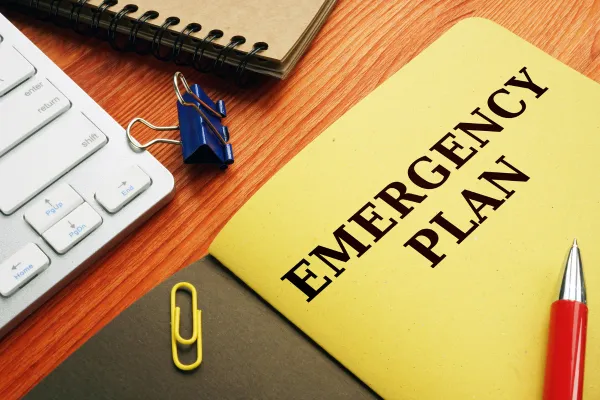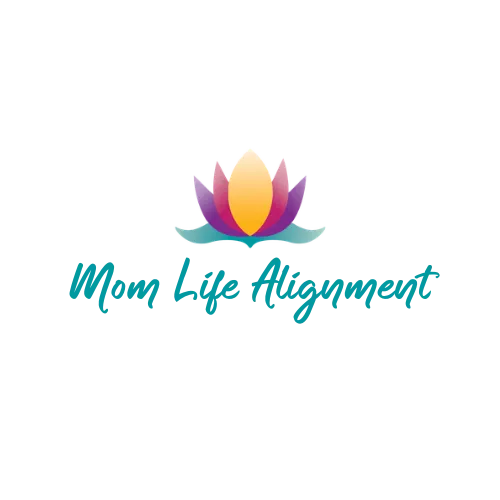Self-Reliance
Self-reliance is where practical skills and mindset shifts inspire empowerment and encourage independence.
This post may contain affiliate links, which means I’ll receive a commission if you purchase through my links, at no extra cost to you. Please read full disclosure for more information.

How to Get Started With Preparedness
How to Get Started With Preparedness
September is National Preparedness Month! More than anyone I know, it's a busy Mama who understands the importance of always being prepared, wouldn't you agree? After experiencing the worldwide pandemic and having a family member with specific dietary requirements that we've all adapted to, preparedness began to look slightly different for us moving forward. Now, if you didn't know, I grew up a country girl, and knowing that you had what you needed at your fingertips was always reassuring, especially during the winter months or any seasonal storms like blizzards and hurricane season.
Growing up, I saw home-canned preserves in my grandmother's pantry and knew how to use a percolator. IYKYK, K-Cups have nothing on percolated coffee. But seriously, my dad ensured we had the tools and resources and equipped us with the knowledge to use these older items (dare I say, antiques). He also taught us valuable skills like gardening, hunting, and fishing. Sometimes, I reflect and wonder how we got so far removed.

It has been four years, and I think it’s safe to say we’ve all learned valuable lessons in 2020. As a suburban military wife, I soon realized I was not nearly as prepared as I would like. And so, I have committed to following through with preparedness tasks, learning skills, and gathering supplies that are right for me and my family. I would love to start and share our journey to self-reliance and sustainability in this blog category called self-reliance. This is also my way of getting as close to our roots as possible and passing down valuable traits to my children, hoping they would one day do the same.
Although this won't be a perfect journey, it is ours and one that we plan to embrace fully to the best of our abilities and affordability. I know we will learn a ton along the way, and if you stick around for it, I'm glad to share and here to help. Here's what we have done and are working on so far.
Determine the Likeliest Natural Event for your Location
Understanding what you need to be prepared for is an excellent place to start. What types of natural events can most likely occur depending on your area? It can be an earthquake, tornado, hurricane, or anything like that. Knowing this helps you to determine the types and quantity of supplies you need to stock up on and store for you and the fam.
Make a List
Create a list of what you love and frequently use. I broke down my categories according to my shopping—i.e., Pantry, Freezer, Hygiene, Household, etc. I looked at what our diet consists of and determined ways I could buy in bulk to save and have more for less.

Create Space
We had to clean it up and create space by cleaning, organizing, and eliminating things we do not need or want. You’ll want to store your items under the right conditions, and this means as climate-controlled and protected as possible.
Gather Resources and Create a Library
It is great to be inspired, but gathering accurate and reliable information from reputable sources is necessary to get started correctly. Some of my recommendations for these reputable sources on varying topics are:
American Red Cross
https://www.redcross.org/get-help/how-to-prepare-for-emergencies/make-a-plan.html
Ready.Gov
USAEmergency Supply
https://www.usaemergencysupply.com/
National Center for Home Food Preservation
https://nchfp.uga.edu/publications/publications_usda.html
Centers for Disease Control and Prevention (CDC)
It is a good idea to gather the necessary resources and have hard copies and lists of such information in case there is no internet available during a storm or disaster. Place these items into a binder for easy access in the event of an emergency so that you or a designated person can grab it and go.
Basic Skills
In my opinion, this is the most critical prepping area because education and skill can never be taken away from you. Knowing how to make shelter, build a fire, filter water, garden, preserve food, use self-defense, and potentially save a life through first aid and CPR are essential basic skills that can be necessary for survival. Now, ask yourself what you are good at and what skills you have. Then, make it a priority to learn something new and put those plans and skills to the test because practice makes permanent. This means that in an emergency situation, your ability to save yourself or a loved one is instinctive, and instead of panicking, you readily react.
72 Hour Emergency Kit(s) or Basic Bug Out Bag (BOB)
During a disruptive event, it is always best to first Bug In… aka stay in place. Your home is where you house all of your supplies, so it is best to stay in place until it is no longer safe to do so. Should you have to leave or “Bug Out,” having a supply of items you will need and want to take on the go should be in your possession. A basic BOB can be easily carried, and each family member should have their own items specific to them and their wellbeing.

FOCUS on ONE Thing At a Time
There are so many ways you can categorize and group various preparedness topics. First, you should evaluate what you already have and look at what you need. An example of priority categories for preparedness needs is listed below. You may see this and think, “Well, that’s everything,” but trust me, it is not. These areas can have subcategories and be broken down even further, such as Drinkable Water Storage, Water Filtration, Water Purification, Water Rotation, etc., because the last thing you want with food and water is to stock it up and allow it to sit. The rule is to “store what you use and use what you store," and you do this so that there is a continuous fresh supply of goods being rotated through.
Water
Food
Emergency Cooking
First Aid/Medical
Financial
Be REALISTIC!
Getting caught up and going down the rabbit hole of preparedness is easy, but you must be REALISTIC about YOUR situation, family needs, and goals. Don't feel overwhelmed and think you have to have everything and do everything you see other people, homesteaders, or preppers do. Just know the only wrong way to be prepared is not to be.
I hope you can appreciate that this list is just a starting point and by no means encompasses everything. For my family and me, practical preparedness plays a significant role in our productivity. As the homemaker, I feel it is my responsibility to ensure that we have the tools and resources available for any situation that might arise. To me, preparedness means doing our best to be ready for whatever challenges come our way. I view preparedness as a continuous journey rather than a goal to be perfected. The most important step is simply to begin!
Again, as a newbie to preparedness myself, you have my support and know you can do this. I hope these future posts on self-reliance help you and your family become more resilient as a collective.
DISCLAIMER
This website is a participant in the Amazon Services LLC Associates Program, an affiliate advertising program designed to provide a means for sites to earn advertising fees by advertising and linking to amazon.com


